Doctor Who’s long history of political and social consciousness
Anyone who thinks Doctor Who hasn't always used its storytelling for politically and socially conscious ends hasn't been paying attention...
When Doctor Who first aired fifty-five years ago, its remit was to produce educational stories for a family audience that would teach children about science and history. That’s why the TARDIS travels in time and space, and it’s why the Doctor’s first human companions were a science teacher and a history teacher. The current series has returned to that remit in a way we haven’t seen since the 1960s, producing historical stories that explore racism, sexism, war and colonialism for a family audience.
Political and social commentary in Doctor Who is nothing new, however. The series has always offered stories that reflect on ourselves and our culture, society, problems and history. Here, we’ve collected a smattering of just a few of the politically and socially conscious stories the show has told over the years.
There are many, many more stories we could have talked about, but we’ve aimed at a wide range covering as much of the show’s long history as possible. We’re focusing solely on television episodes here, and only on those that have survived, so that anyone wanting to watch any of these stories can do so. All the Doctors are represented except for the Sixth (a substantial chunk of whose relatively short time in the TARDIS was taken up by the Trial Of A Time Lord story), Eighth (who only appeared in one episode) and War Doctors (again, a one-episode-only Doctor) and the Thirteenth, on the grounds that we’ve all only just seen her first series and can still remember it pretty clearly. The Third Doctor is a bit over-represented due to the high focus on political and social issues during his tenure.
What we want to do here is to recommend stories casual Who fans might enjoy watching, and to offer recommendations from the Classic series (and older iterations of the new series) that new fans might enjoy, which also showcase the series’ on-going commitment to addressing major political and social issues. As such, some stories with very obvious political or social metaphors have not been included, on the grounds that we would not recommend them – Aliens Of London/World War Three and The Happiness Patrol, we’re looking at you! We’ve gone for stories that are both enjoyable in their own right, and that offer interesting political and social commentary, but there are so many more we could have included – add your own suggestions in the comments!
We’re also focusing on stories that were intended as political or social commentaries on issues that were relevant at the time – the series has been known to predict the future (most notably featuring a phone call to a female Prime Minister set during the 1980s, in an episode made during the 1970s) and some stories have greater resonance in later years, but that’s another issue.
Third, Fifth and Eleventh Doctors
Any story involving the Silurians 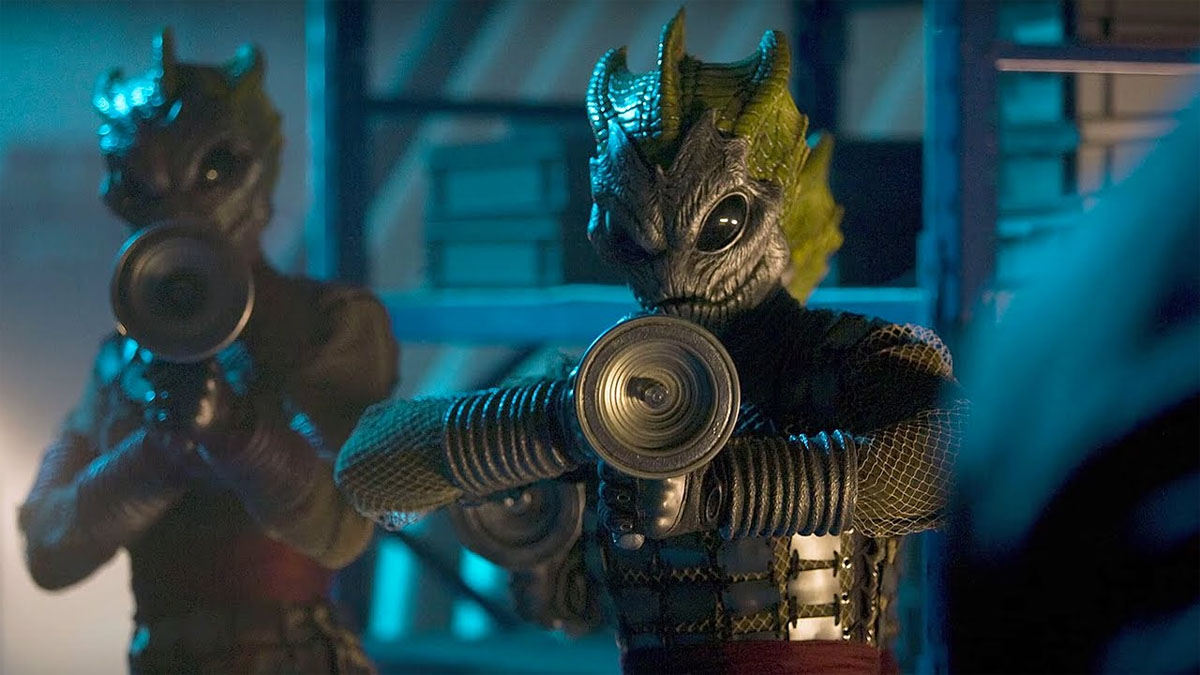
Issues: Peace and war, the rights of indigenous peoples
The Silurians (along with their aquatic cousins the Sea Devils) are a race of lizard people who lived on Earth long before humankind, and went in to a very long hibernation to avoid atmospheric catastrophe. Stories revolving around the Silurians tend to focus on human reactions to these native Earth inhabitants wanting to share – or take over – their space, and Silurian concerns about human attack. In addition to the obvious subtext about the rights of newcomers over the rights of the original native inhabitants (the Silurians, who lived on Earth long before humans), Silurian stories often focus on the dangers of aggravating a situation or creating enemies unnecessarily through the use of pre-emptive strikes, or disproportionate retribution. Both sides are usually convinced the other is going to kill them, and determined to get their shot in first. This is true of both their re-introduction to New Who in The Hungry Earth/Cold Blood (written by current show-runner Chris Chibnall), and the Brigadier’s destruction of the Silurian base in their debut story Doctor Who And The Silurians – surely one of the most downbeat, grim story endings of the Pertwee era.
First Doctor
The Daleks 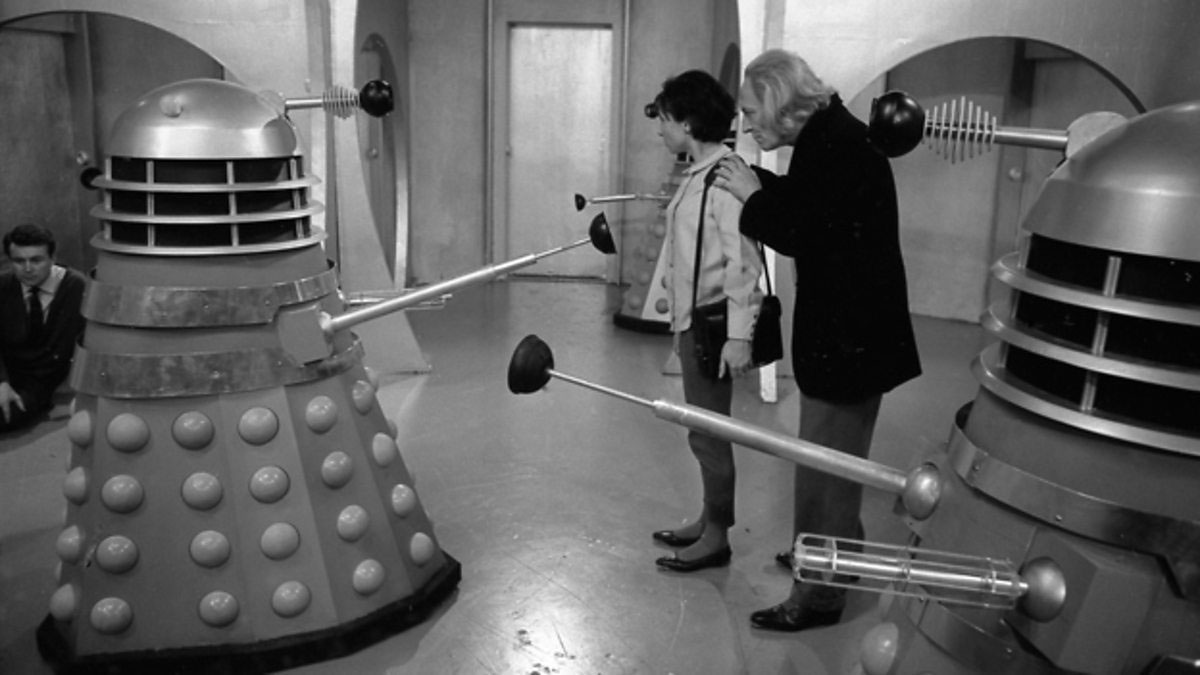
Issues: Peace and war, racism, radiation
‘Political and social commentary’ is probably not at the top of anyone’s list of reasons to watch the serial that made Doctor Who what it is. This story introduces the Daleks, offers the first visit of the show to an alien planet, famously terrorises Barbara with a plunger, features the first kiss of the series, and so on, and so on… Just go and watch it if you haven’t seen it. But while you do, also notice its interesting, if slightly confused, political commentary. The serial manages to be both anti-pacifist (the Thals must stand up to the Daleks) and anti-war, which is perhaps less surprising when you consider that nearly everyone involved in making it could clearly remember World War Two, and were therefore fully aware of the both the occasional necessity, and the horror, of war. The Thals’ bizarrely Aryan appearance somewhat undercuts the attempt at a commentary on racism, but it was an attempt, while the dangers of radiation sickness are clearly spelled out in this Cold War story.
Second Doctor
The War Games 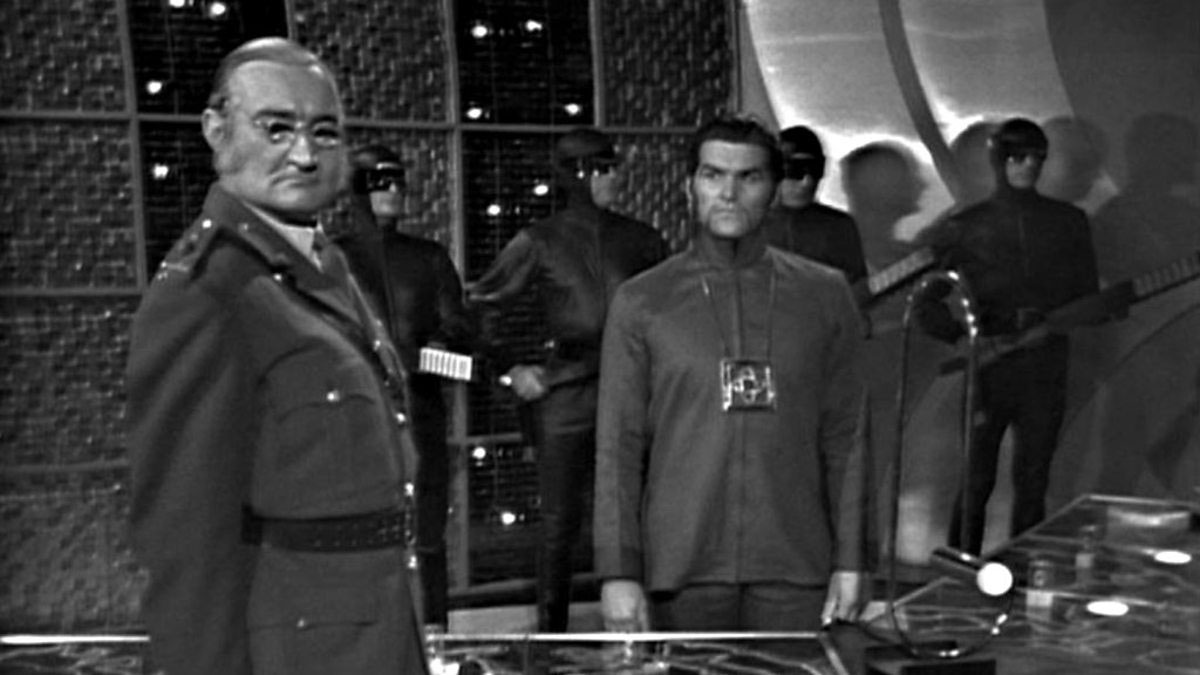
Issues: Peace and war, obligation to others
There are so many reasons to watch The War Games. It’s the serial that introduced the Time Lords, in the form of the War Chief – not, officially, the Master, but if you tend to watch only the TV series it’s a lot of fun to imagine that he is. It’s the final serial featuring Patrick Troughton’s Second Doctor and his companions Jamie (the companion who has appeared in the most individual episodes in the show’s history) and Zoe, and it results in the Second Doctor’s regeneration, though we don’t actually see the Third. It’s also just really good. In addition to all that, as you may be able to tell from its title, The War Games rests for its concept on the horrors of war, and the callousness of generals using lower ranking soldiers with little care for the soldiers’ well-being. It also explains for the first time one of the reasons the Doctor lives in exile from his own people – his determination to help others in defiance of the Time Lords’ equivalent of Star Trek’s Prime Directive. This introduces an intriguing moral quandary – though in all honesty, the show doesn’t really question whether or not we should agree with the Doctor.
Third Doctor
Inferno 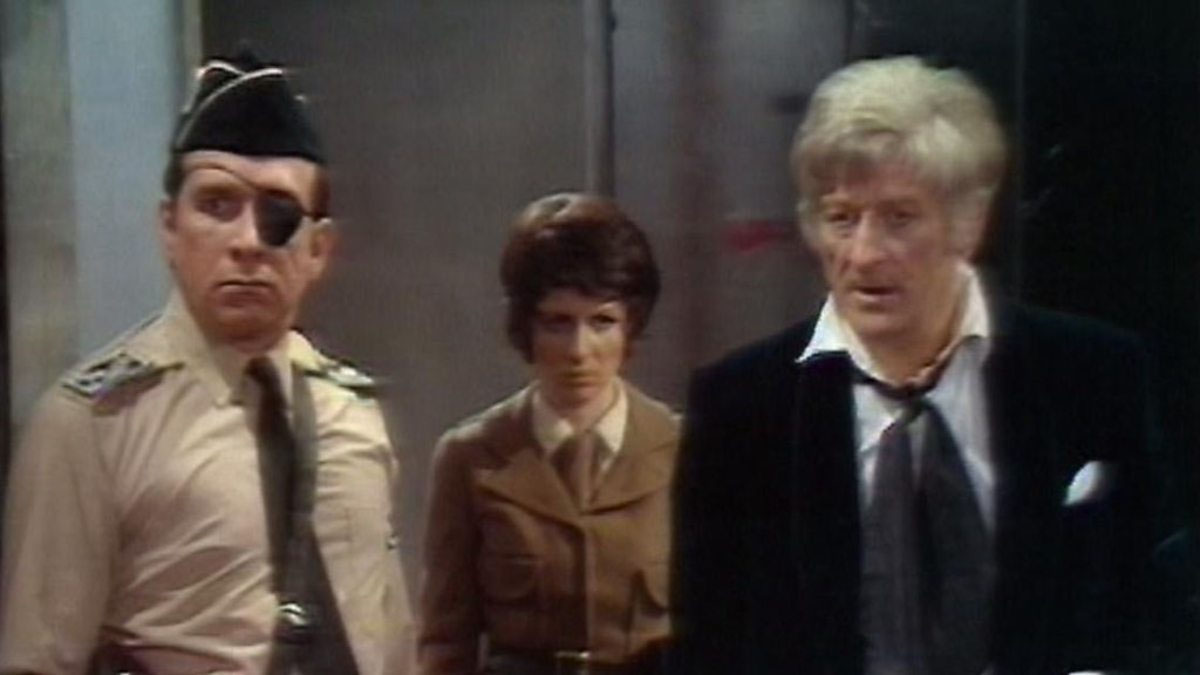
Issues: Environmentalism and destruction of resources, ignoring scientific warnings for personal gain
Who doesn’t love a Mirror Universe episode? We get a rare example of a character’s evil counterpart sporting less facial hair in the cowardly Brigade Leader, another universe’s version of the Brigadier, while of course the female companion’s alternate universe counterpart wears a short skirt and sexy boots with her military uniform. But this episode is also about issues that are even more important today than they were then. In Inferno, an entire alternate Earth is put at risk by Professor Stahlman, who is determined to drill into the Earth to exploit a new resource no matter how many times the Doctor warns him that the consequences will be terrible – and they are…
Third Doctor
The Curse of Peladon/The Monster of Peladon 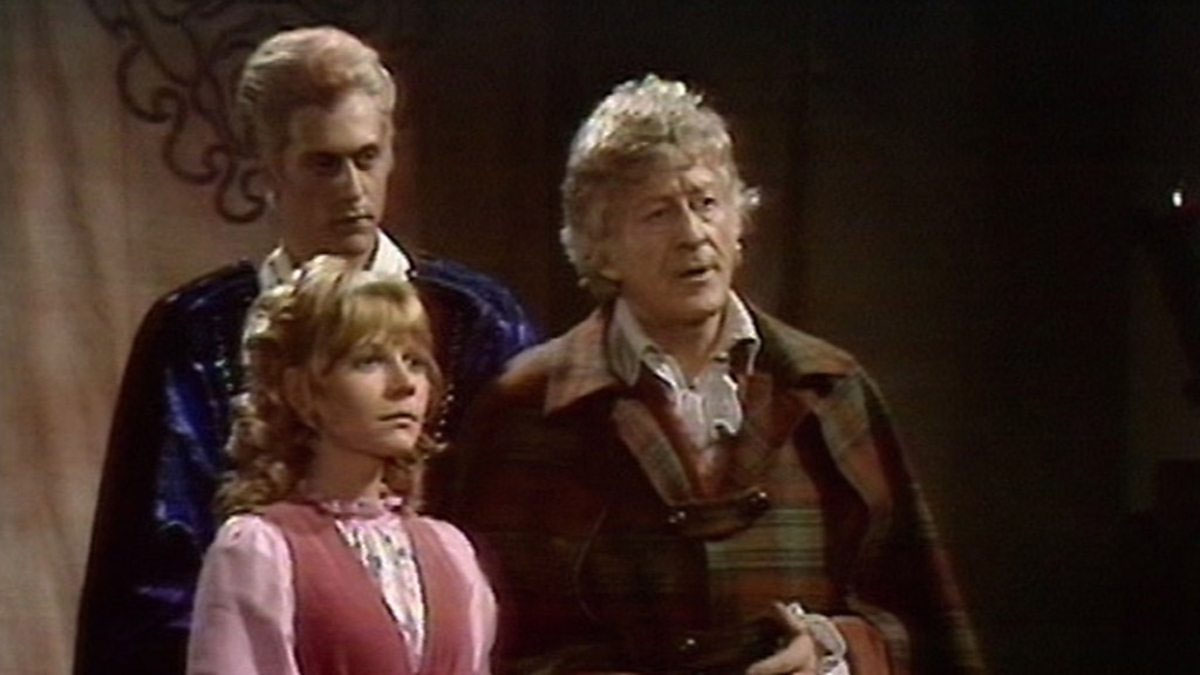
Issues: membership of the European Economic Community, the 1970s miners’ strike, sexism
The writers of The Curse Of Peladon, in which the Third Doctor and Jo Grant uncover a conspiracy among the elite of Peladon to stop their planet from joining the Galactic Federation because they want to exploit their resources themselves without interference, have denied that the story is about Britain joining what was then the European Economic Community, though the influence of that issue is clear to see in the story anyway. Its sequel, The Monster Of Peladon, is even more obviously inspired by the 1972 miners’ strike, as it literally featuring striking miners. The sequel also includes a brief bit of feminist commentary as Sarah Jane Smith assures the Queen that “there’s nothing only about being a girl”. Both stories are fun, especially the first, and worth watching if only for the interesting character design on Alpha Centauri.
Third Doctor
The Green Death 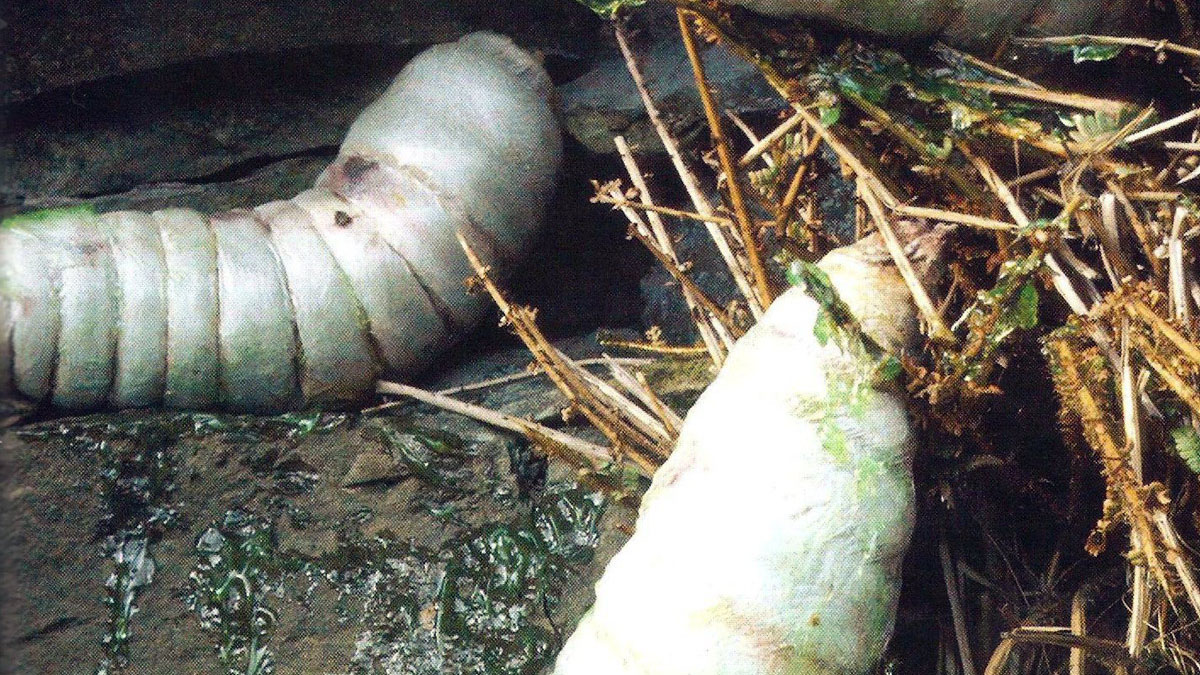
Issues: Environmentalism
The most memorable thing about this serial is the poignant departure of Jo Grant to marry a man remarkably similar to the Doctor, whom she met in just the same way she met the Doctor, breaking Third Doctor Jon Pertwee’s heart in the process (whether he was romantically or sexually interested in Jo is beside the point – he’s clearly heart-broken at her leaving). But The Green Death is also an environmental warning, as well as an advert for vegetarianism (Jo leaves the Doctor for a man trying to grow a new fungus to replace meat). It’s even got more miners in it as well, not to mention the Doctor cross-dressing as a Welsh cleaning lady. What more could you want?!
Fourth Doctor
Genesis of the Daleks 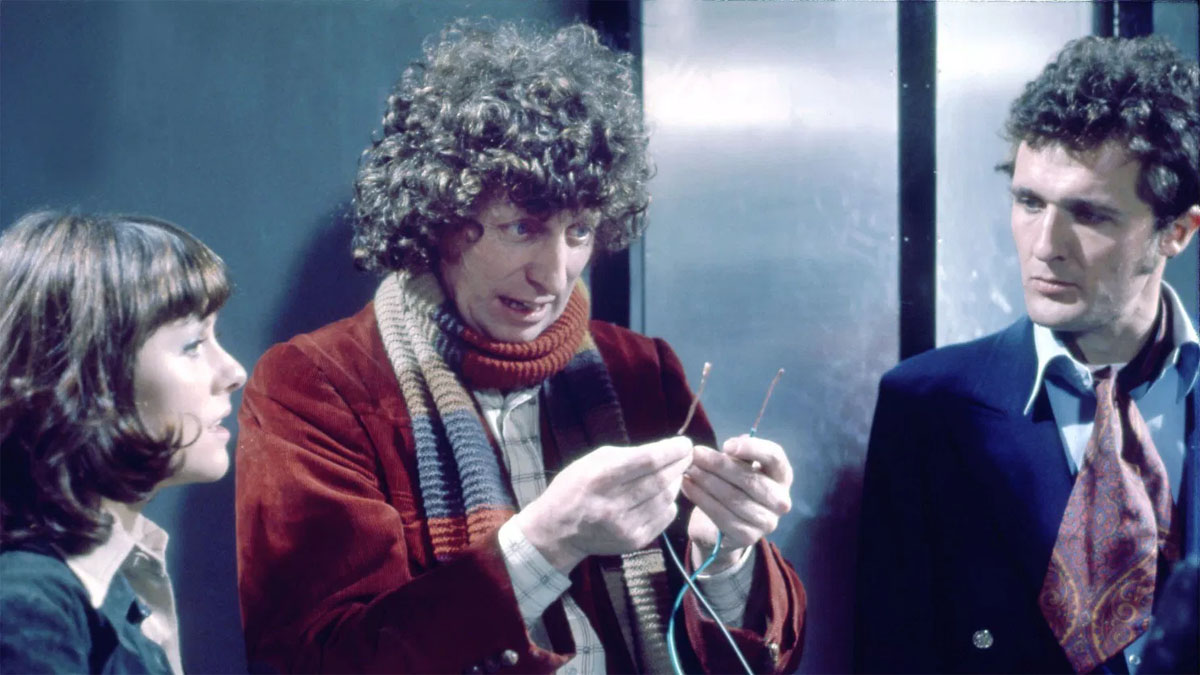
Issues: Moral and philosophical ethics, genocide
The serial that introduced Davros, creator of the Daleks, and gave Tom Baker perhaps his best, most electric speech in seven long years in the TARDIS, this is a firm fan favourite. The Doctor’s specific moral dilemma in this serial is one that only applies to time travellers, but the larger philosophical questions about whether it is better to attack some to save many are more widely applicable. The core message is that genocide is inherently wrong no matter how well justified it seems, set against the clear Nazi-allegory of the Kaleds (and only slightly spoiled by later developments, which see the Doctor make a different decision). Also, the serial features a literal cliff-hanger, so that’s fun.
Fifth Doctor
The Caves of Androzani 
Issues: Peace and war, big pharmaceuticals, radiation
Like several others on this list, this is a fairly bleak and depressing serial (see also Doctor Who And The Silurians, Inferno, Genesis Of The Daleks). The Fifth Doctor’s final story becomes something of a meditation on the pointlessness of war and selfishness and greed, with all the petty and selfish characters we meet held up against the Doctor’s selflessness and determination to save even one life. The serial isn’t entirely without humour, but the decision not to actually show the Doctor milking a bat on screen was probably wise, and has helped it to top many a ‘best of’ list.
Seventh Doctor
Battlefield 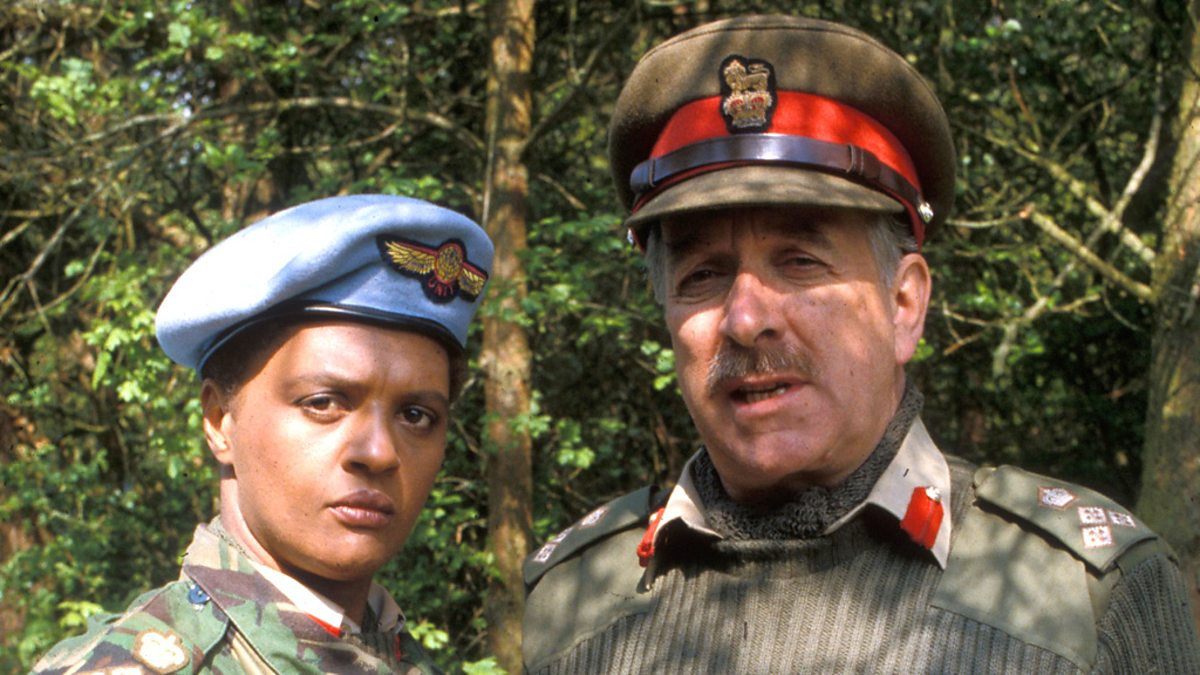
Issues: Peace and war, nuclear war, modern warfare in general
The quality of this serial is more contested than, say Genesis Of The Daleks or The Caves Of Androzani. However, the serial is worth a watch for a couple of reasons. For one thing, it blends Arthurian legend with Doctor Who and suggests the Doctor might be Merlin, which is one of those ideas that, when they come up, you wonder why it took so long for someone to think of them. It is also the final appearance of Brigadier Lethbridge-Stewart as a living human being on regular Doctor Who (his final appearance was in The Sarah Jane Adventures, while the character briefly appeared in a much altered form in Death In Heaven). For this military character’s final story, the Doctor lays on an epic rant in which he decries the impersonality of modern warfare and the horror of nuclear weapons. Obvious, but no less important for that.
Ninth Doctor
The Long Game 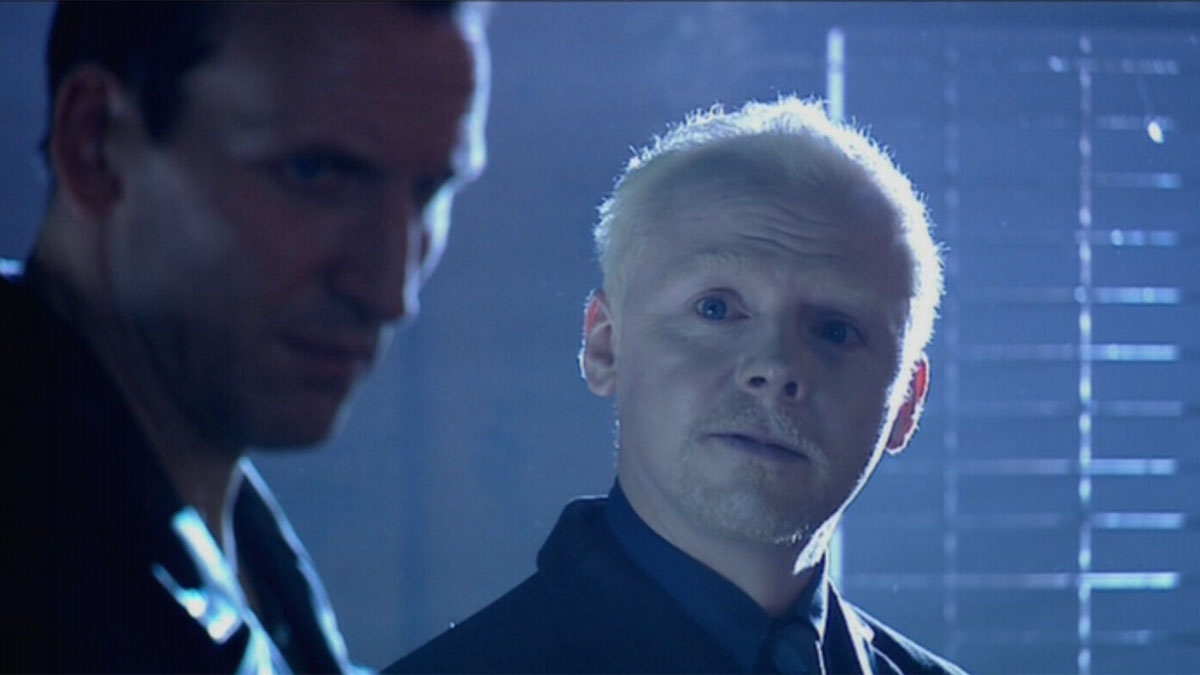
Issues: the power of the media, fake news
Not the most popular of the Ninth Doctor’s tenure, but while The Long Game has a somewhat poor reputation among fans, there are things here that make it worth a second look. The ever reliable Simon Pegg puts in a solid guest performance and the episode’s climax features one mysterious moment that, while for some viewers it is just confusing, for others provides a genuine chill. The Editor’s assertion the “the right word in the right broadcast repeated often enough can destabilise an economy, invent an enemy, change a vote” is all too true, and would be an on-going concern of the series, manipulated by, of all people, the Doctor himself when he takes down Prime Minister Harriet Jones in The Christmas Invasion.
Tenth Doctor
Turn Left 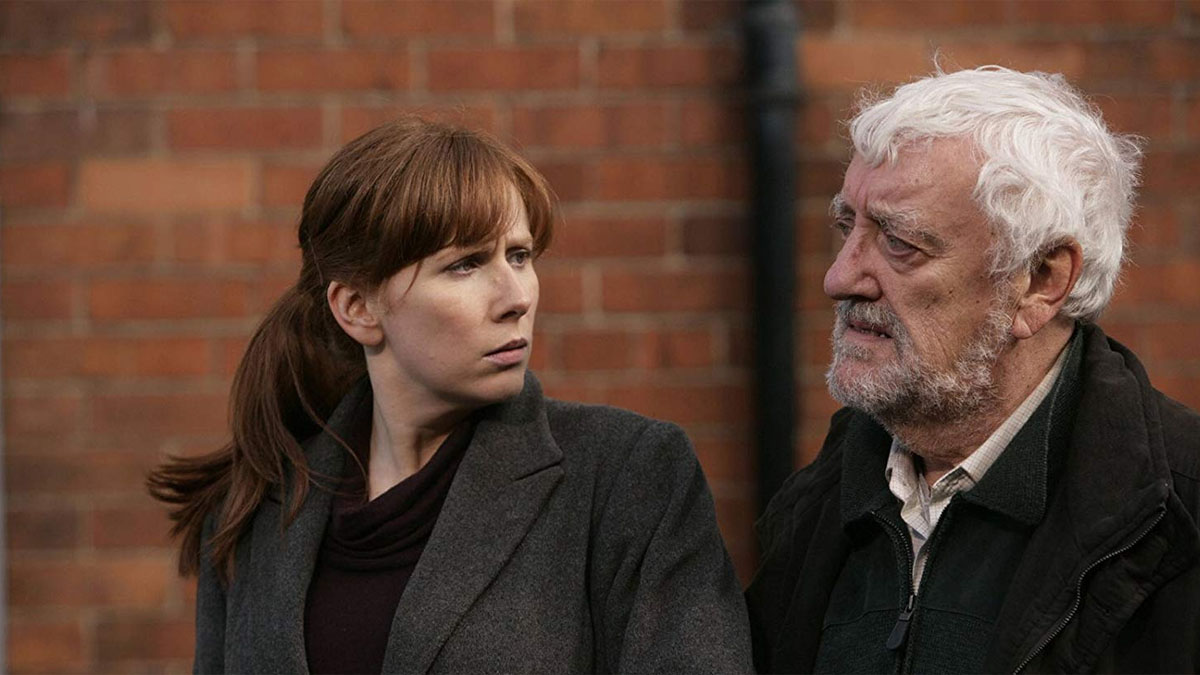
Issues: genocide, anti-immigrant prejudice
Doctor Who does It’s A Wonderful Life, with added political commentary and giant bugs. When Donna turns right rather than left, the Doctor dies and the UK becomes an increasingly unstable society in which Donna and her family are forcibly moved to a new city and their new friends who are immigrants are shipped off to a ‘labour camp’. Bernard Cribbins’ performance as Wilf absolutely sells the gravity of the situation as he says “It’s happening again”. While some viewers found the portrayal of the fortune teller at the episode’s opening and closing sections racially insensitive, there’s no denying the power of the horrors depicted in the main story.
Eleventh Doctor
Vincent and the Doctor 
Issues: Depression, suicide
Richard Curtis is best known for romantic comedies and classic sitcoms Blackadder and The Vicar Of Dibley. His contribution to Doctor Who, however, is quite different. There are parts of Vincent And The Doctor that are incredibly sweet, while also a little troublesome for a show about time travel (Vincent gets a trip to the future to discover the legacy of his own works – is every well known figure they meet going to get the same favour?). The episode really becomes meaningful, though, in its conclusion, as the awful, grinding reality of depression is brought home, albeit with a glimmer of hope offered by the Doctor’s suggestion of adding to someone’s pile of “good things”. A beautiful, tragic episode, and a suitable tribute to the historical figure who inspired it.
Twelfth Doctor
The Zygon Invasion/The Zygon Inversion 
Issues: minorities, radicalisation, peace and war
This two-parter is not subtle with its political commentary. Kate Stewart talks about the ‘radicalisation’ of some young Zygons, plural Osgoods make the point that every group of people includes some good and some bad, and Part 2 (The Zygon Inversion) is all about preventing war. For extra bonus points, this situation is also one created when the Doctor got involved between humans and Zygons, told them to patch up their differences, and then left to deal with his own thing without actually doing the hard work of working out how they would function; if there’s anything the last 20 years of politics has taught us all, it’s to think through how you’re actually going to deal with something, don’t just leave halfway through. The story is worth your time, though, as a solid Twelfth Doctor/Clara story with a worthy message at its core.
Twelfth Doctor
The Pilot/The Doctor Falls 
Issues: Homophobia – or rather, the lack of it!
Whether you consider Bill Potts the Doctor’s first openly gay companion depends on how you define a ‘companion’, given that Captain Jack Harkness has been around since 2005 (and there were a few hints about Ace back in the 1980s). What is significant about her first and second-to-last episodes, though, is the importance of her romantic sub-plot with Heather, which becomes a driving factor in her story in a way that Jack’s relationships only did on Torchwood. The story itself is pure Moffat, all partial death and transformed survival, and the fact it’s between two women is largely irrelevant – which is, of course, the point. If you’re utterly depressed after all that war, environmental damage, racism, sexism and so on, give these a watch to cheer yourself up and remind yourself that the world is, slowly, becoming a better place.
